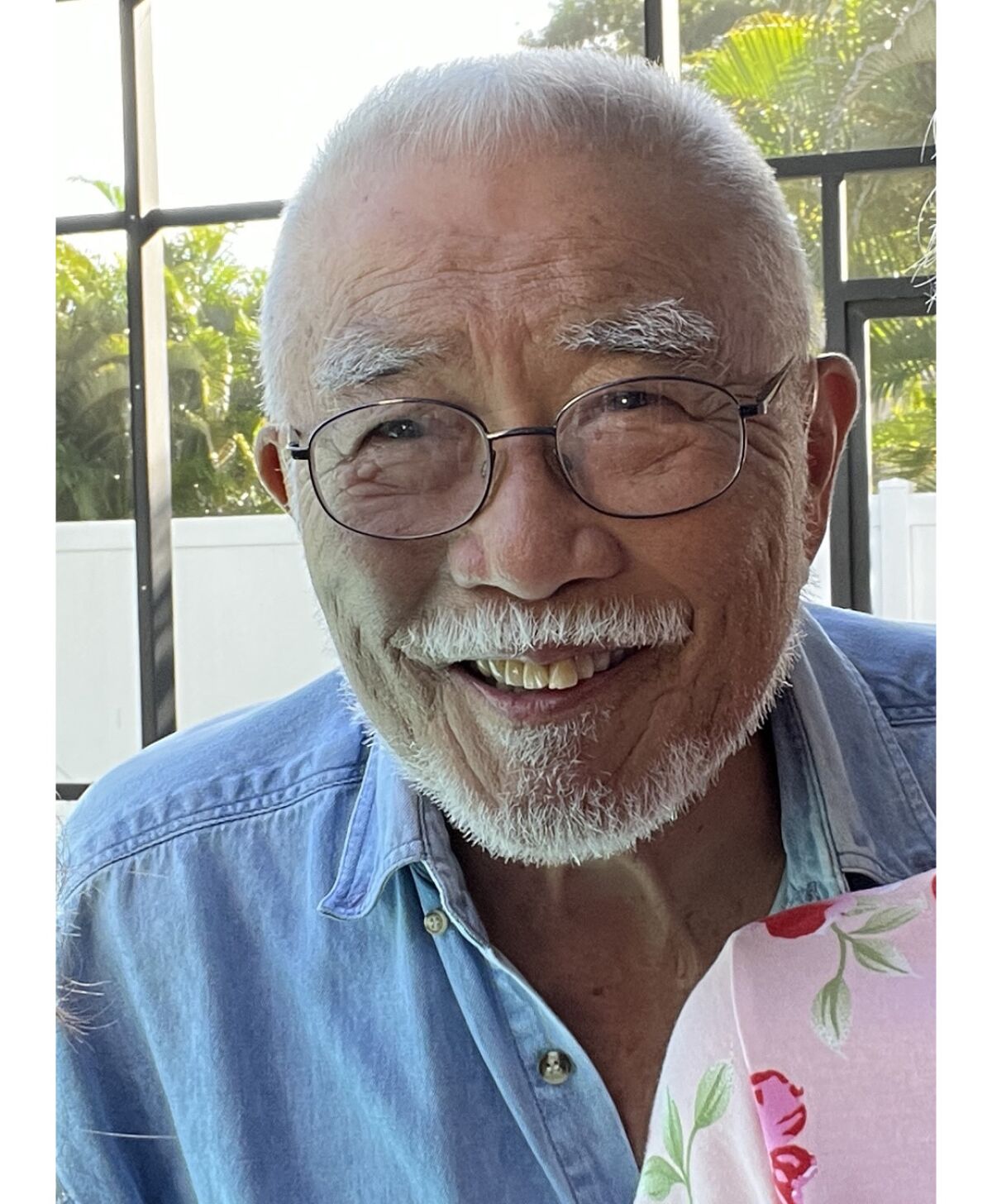At 12, Theodore Kanamine’s life drastically changed.
Under United States order, Kanamine and his family hurriedly packed up their North Hollywood home and were bused to a prison camp in Arkansas.
Kanamine no longer saw Walt Disney showing local children unfinished cartoons in his studio. Instead, barb wire decorated the perimeter and guard towers kept a close watch on prisoners. Still, Kanamine adapted to his new life.
Although the family were among the 20,000 people of Japanese ancestry the U.S. incarcerated amid World War II, Kanamine remained unfazed by one of the darkest chapters in U.S. history.
“His belief was that they were put in the internment camp because the United States was a scared country,” said his daughter Laura Rutizer. “It didn’t know what to do so they were just reacting as a scared country would.”
In fact, Kanamine gravitated toward the military service after his release and became a highly decorated general — the U.S. Army’s first active-duty Japanese American general, according to U.S. Army spokeswoman Heather J. Hagan.
“Along the way of his many unsung high-impact deeds, General Kanamine’s rich and valued military service was replete with key MP assignments in both peacetime and war,” the U.S. Army Military Police Corps shared on its Facebook page. “His notable army career was followed by a successful second career as a driving component of numerous civilian community advisory boards and councils.”
After decades of service to his country and community, Kanamine died of cancer March 2 at his Florida home, said his daughter, Linda Kanamine. He was 93.

Theodore Kanamine pictured in September 2022.
(Courtesy of Linda Kanamine)
In the late 1940s, Kanamine earned his law degree from the University of Nebraska but quickly realized he couldn’t see himself as an attorney.
“The typical course would be to go be a lawyer in the military,” Rutizer said. “Well, he didn’t want to do that because he wanted to be with the troops. He wanted to be on the ground and in the action.”
Kanamine served in the Naval Reserves and eventually left Nebraska to serve as second lieutenant in the U.S. Army Military Police Corps. He was later stationed in Garmisch-Partenkirchen, Germany, which marked the first of many moves with his family throughout his career.
Kanamine thrived in the Army. He led the investigation into the My Lai Massacre, where hundreds of Vietnamese were raped and slaughtered by American soldiers. He also researched the toxic chemical Agent Orange when he was stationed at the Pentagon. By 1976, the Army promoted him to brigadier general.
One of his career highlights was commanding the 716th Military Police Battalion to protect Saigon during the Vietnam War.
“The thing I remember about the Vietnam War, especially where I was assigned in a big city, was that during the daytime it was happy and busy. … At nighttime, it was quiet and dark and spooky,” Kanamine recalled in a family book gifted to him on his 80th birthday.
Even in love, Kanamine followed his own course at a time when prejudice permeated everyday life. He met his future wife, Mary Stuben, while working at the Omaha Field Club pool one summer break. The couple — one Japanese, the other German — dated secretly. They married in 1954 in Iowa because Nebraska law barred interracial marriage.
Stuben’s parents “were not in favor of the interracial thing,” Kanamine recalled. “We had to sneak out every now and then” with help from their friends.
By 1981, Kanamine retired from active duty. He was awarded the Distinguished Service Medal as a retirement award. Years later, the Military Police Corps inducted him into its Hall of Fame.
Despite all the accolades, Kanamine remained grounded and waved off the praise.
“My awards and citations were for various tasks associated with my numerous assignments,” he wrote on Discover Nikkei, a website documenting the history of Japanese descent. “I simply did what was necessary in the very best manner I could.”
Even in retirement, Kanamine continued to serve his community. He volunteered at the Holy Family Catholic Church in Port St. Lucie, Fla., where he led the men’s club and other groups.
He also made time to swim nearly every day. Kanamine first fell in love with the sport in his formative years, when he served as captain for his high school team and later joined the varsity team in college.
Kanamine continued his world travels and once achieved 12 strikes in a row in ten-pin bowling — the perfect game. He also threw the first pitch at a Colorado Rockies game in 2005.
Despite life’s challenges, Kanamine found comfort in family and friends.
“Life is not always ‘peaches and cream,’” he wrote on Discover Nikkei. “Home and country must be protected. Have the personal discipline to know what is right and develop the skills necessary to do whatever the task is in the best way you know how.”
Kanamine is survived by his wife, their five children, and numerous grandchildren and great-grandchildren.